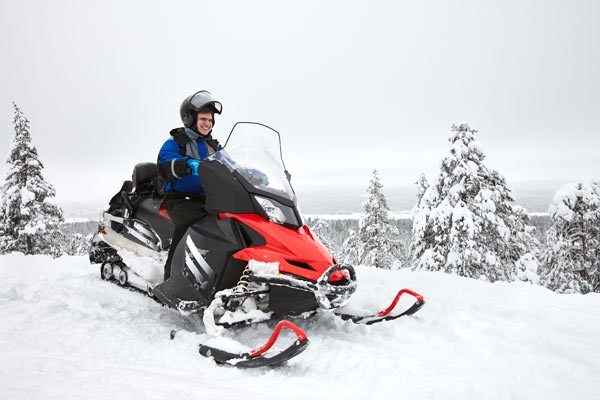REVELSTOKE, B.C. — British Columbia already has a carbon tax, although at just $30 per ton, it probably isn't high enough to actually change behaviour or suppress emissions.
But an environmental group would like to raise the ante in Revelstoke, stiffening the tax on the use of fossil fuels used for snowmobiling and possibly for heli-skiing and heli-hiking.
The North Columbia Environmental Society not only wants the levy assessed on snowmobiling but also wants the city to stop promoting snowmobiling. The group would have the local government use the revenues to relieve its carbon tax obligations.
The group, according to a report by the Revelstoke Times, calculated that one two-stroke snowmobile can emit up to 84 kilograms of carbon per day. A Bell 212, helicopter, which is commonly used for heli-skiing, emits 4,800 kilograms per day.
Perhaps the best evidence about the production of carbon dioxide by snowmobiles was done at Yellowstone National Park in the late 1990s. Since then, however, two-stroke engines have been largely replaced by four-stroke engines, which burn fuel more efficiently and produce less pollution.
But regardless of the exact production of snowmobiles in the Revelstoke area, the debate probably will be more general. Daniel Kellie, the president of the Revelstoke Snowmobile Club, told the newspaper that 28,000 snowmobilers who used the club's trails last year already paid an extra three cents per litre for gasoline. "As a user, we're already paying our taxes."
He also wondered why the environmental group singled out snowmobilers and did not address dirt bikers or heli-skiers with the same purpose.
One commenter on the newspaper's website, though, thought it was a fair request. "If people travel in a polluting manner in order to participate in an athletic adventure that has hefty carbon footprint, it follows they have money to burn and we should ask them to bear their fair share of the civic carbon tax burden."
Misery under the little tent of a traveling circus
WESTCLIFFE, Colo. — The circus is coming to Westcliffe, but not everybody is happy.
The Garden Brothers Circus, with its assorted clowns, acrobats, and fast-trotting camels, was/is scheduled to give a June 16 performance in the Wet Mountain Valley, with the sky-piercing Sangre de Cristo Mountains as a backdrop.
The performance will include elephants who have been forced to do things elephants don't naturally do. That offends local veterinarian Philip K. Ensley. He told the Wet Mountain Tribune that there is great misery and harm under even the smallest of travelling circus tents such as those that visit small-town America.
Citing his study of one circus, he found that nearly all of the elephants, both young and adults, had foot problems or musculoskeletal disease. The elephants are trained from infancy by use of a "bull-hook," described as a spear-like, steel-tipped tool used to condition and punish elephants.
"The biology of the elephant, an endangered species, has evolved an animal with high levels of intelligence, living in genetically balanced, tight family groups in immense spaces. Circus training and performances deprive them of all of that," said Ensley, who was described by the Tribune as an internationally known expert witness in cases of alleged abuse to performing animals.
The Tribune reported restrictions on the use of elephants in circuses now in several states.
This particular circus was scheduled to arrive in the mountains of Colorado after touring through five Midwestern states. After the Friday-night show in Westcliffe, it's on to a show the next afternoon in Loveland, five hours away along Colorado's Front Range.
And so it will go for the pachyderms, acrobats, and clowns as they travel through Nebraska, Colorado, Wyoming, Utah, and Nevada. That's just the June schedule.




